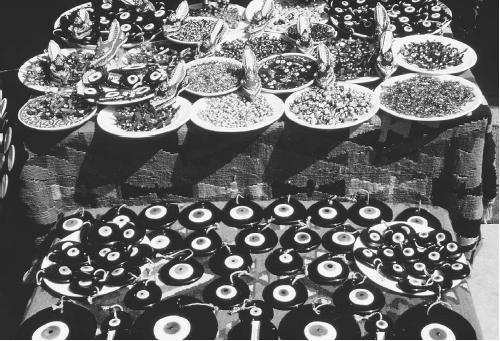Superstitions
The evil eye
Among many people and cultures, the fear of the evil eye persists as strongly today as in ancient times. In the contemporary world of superstitious beliefs, both men and women can possess the evil eye and direct its negativity toward those who invoke its wrath. A vast array of charms, spells, and incantations for the purpose of warding off evil influences has been passed down from generation to generation. In ancient times, the amulet intended for protection against the evil eye was usually just a bit of stone, a shell, or an image carved

The Dutch, the Irish, the Italians, the Egyptians, and the Chinese all fear the evil eye and have charms for the purpose of warding off its evil influence. The Dutch place broad strips of black paint upon their farmhouses; the Irish have special charm phrases; the Chinese employ the universal means of fighting off the evil eye by spitting over the shoulder to frighten away the Evil One. Italians, especially the men, wear a charm shaped like a small horn around their necks as a deterrent to malocchio, the evil eye. Some individuals may also spit over their shoulder and cross themselves when they feel they have been the victim of malocchio. Even more effective than the sign of the cross, many Italians feel, is to make the sign of the devil's horns by extending the index and little finger. Ever since ancient times, if one does not have a special amulet to defend against the evil eye, then the prescribed antidote is to spit as quickly as possible over the shoulder—preferably the left.
Even today among the country people of Greece, people with blue or green eyes are believed to be capable of matiasma, the evil eye. Those people whose eyebrows are connected are also under suspicion, as well as those individuals who, when they were babies, had their breastfeeding interrupted. Most Greeks believe that those who possess matiasma are not necessarily evil or malicious people, but may simply have the uncontrolled power to kill or injure livestock, cause mechanical breakdowns in machinery, and precipitate various accidents.
The belief in the evil eye remains powerful among the Muslim and Christian Arabs of the Middle East. Mothers purposely leave their children unwashed and shabbily clothed so they will not attract the attention of malignant men and women who might curse them with the evil eye if their offspring should appear too healthy or attractive. If one should ever inquire about her child's health, the affectionate mother will hastily emphasize any defect or illness the child has. Poor mothers dress their baby sons as girls to counter the evil eye. Some give their children nonsensical names, such as "sandal" or "toy marble," so the possessor of the evil eye will overlook them. Any compliment that may be directed at a woman's child will quickly prompt the exclamation, "Mashallah!" (by the grace of God) from the wary mother.

Comment about this article, ask questions, or add new information about this topic: